1. You have annoying toothache that just won't go away
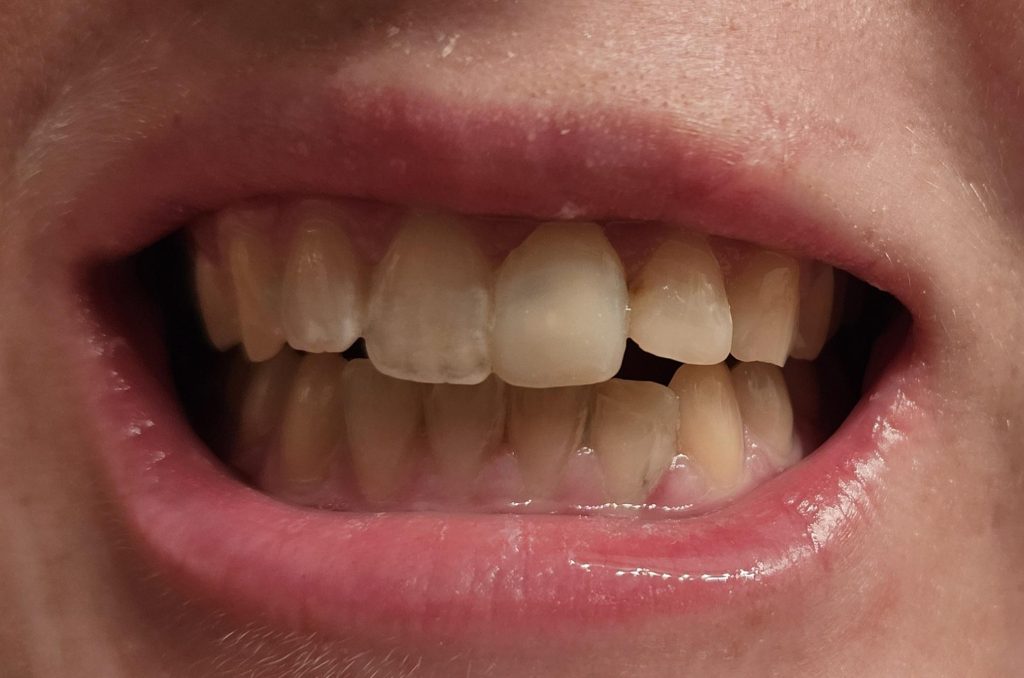 image source: reddit.com
image source: reddit.com
A persistent toothache, whether continuous or intermittent, is often a distressing sign that something is amiss with your dental health. This discomfort can range from mild to severe and may be exacerbated by chewing, biting, or consuming hot or cold foods. Toothaches commonly indicate tooth decay, wherein bacteria have penetrated the enamel and reached the inner layers of the tooth.
2. Your teeth seem really sensitive to hot or cold
 image source: reddit.com
image source: reddit.com
Sensitivity to hot and cold temperatures in the mouth can be a bothersome and often indicative symptom of dental problems, particularly tooth decay. When enamel is compromised due to decay or erosion, it exposes the sensitive inner layers of the tooth, such as dentin and nerves, making them more susceptible to temperature changes.
3. You're noticing holes or pits in your teeth
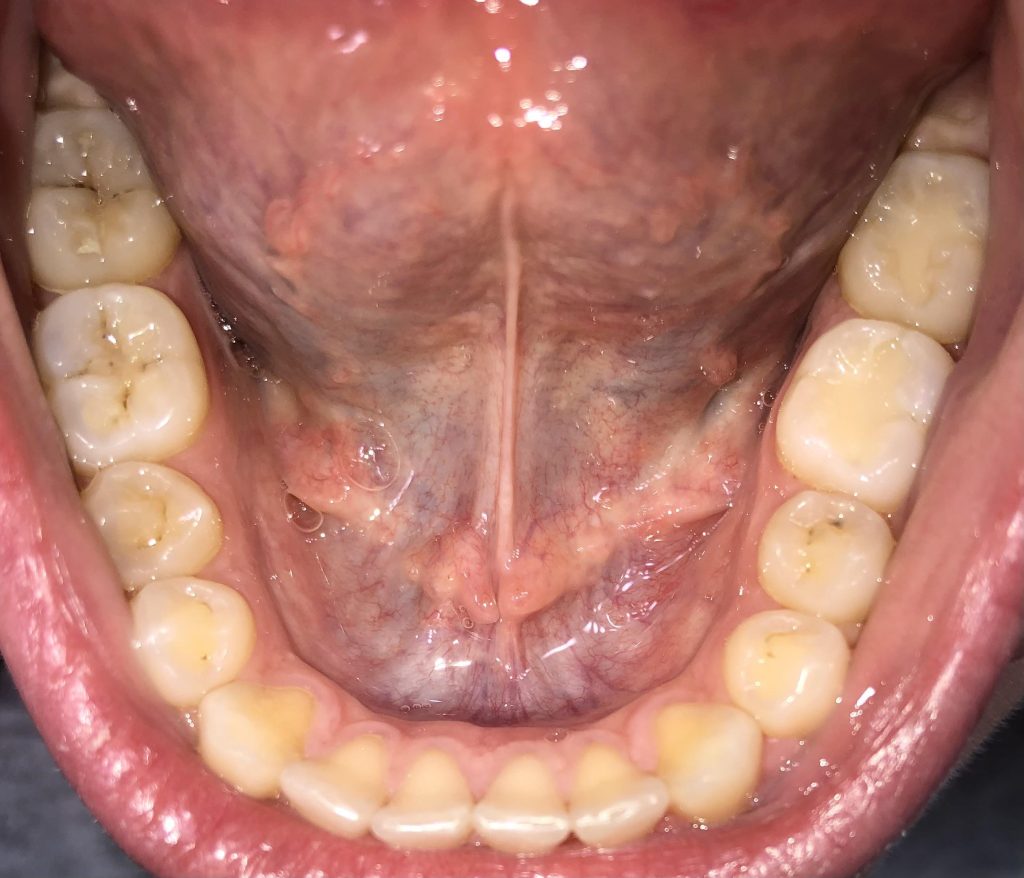 image source: reddit.com
image source: reddit.com
The presence of visible holes or pits on the surface of a tooth is a clear indication of decay and structural damage. These cavities, often caused by bacterial acid erosion of the enamel, can vary in size and severity. Initially, they may appear as small, shallow depressions, but if left untreated, they can deepen and spread, compromising the integrity of the tooth.
4. There seems to be a lot of discoloration no matter how much you brush
 image source: reddit.com
image source: reddit.com
Discoloration of the teeth, characterized by dark spots or staining on the enamel surface, is frequently associated with dental decay and other oral health issues. The discoloration may range from light brown or yellowish hues to darker shades, depending on the extent of the decay and the presence of external staining agents.
5. You can't get rid of your bad breath
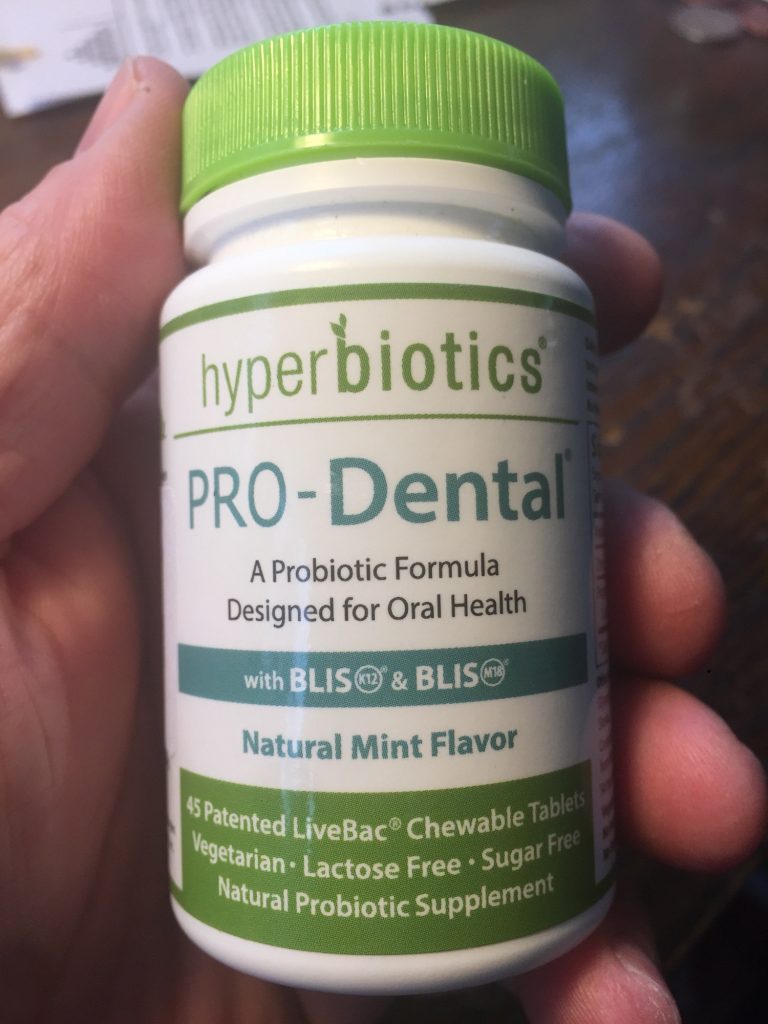 image source: reddit.com
image source: reddit.com
Persistent bad breath, medically known as halitosis, can be a socially embarrassing and distressing condition often linked to poor oral hygiene and dental problems, including tooth decay. When food particles become trapped between teeth or along the gumline, they can decompose, leading to the proliferation of odor-causing bacteria and foul-smelling breath.
6. Your cheeks or whole face looks a little swollen
 image source: reddit.com
image source: reddit.com
Severe tooth decay or infection can cause visible swelling or puffiness in the cheek or face, known as facial cellulitis. When bacteria from a dental infection spread beyond the tooth and into the surrounding tissues, they can trigger an inflammatory response, leading to swelling, redness, and warmth in the affected area.
7. You've had some swelling and inflammation in your gums around the teeth
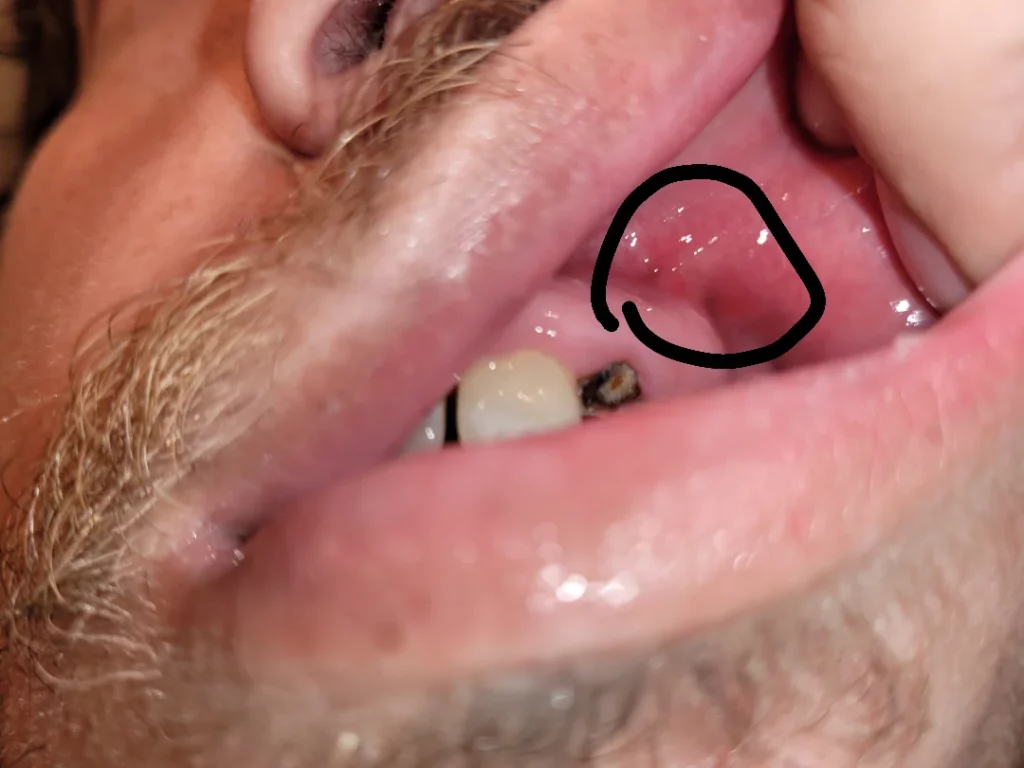 image source: reddit.com
image source: reddit.com
Swelling or inflammation of the gums or tissues surrounding a tooth is often a clear indication of an underlying dental issue, commonly associated with infection or gum disease. When bacteria penetrate the gums and tissues, they trigger an immune response, causing swelling, redness, and tenderness in the affected area.
8. You've actually noticed some pus
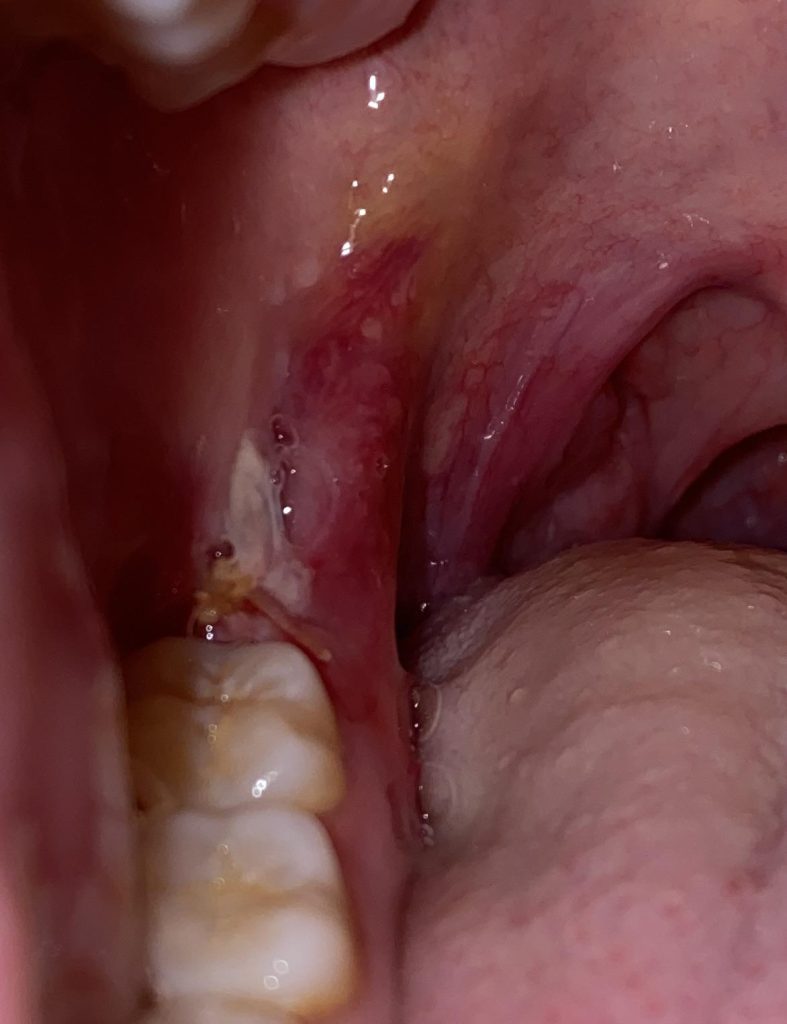 image source: reddit.com
image source: reddit.com
The presence of pus, a thick, yellowish fluid composed of dead white blood cells and bacteria, around a tooth or along the gumline is a concerning sign that indicates the presence of an abscess. Abscesses are serious complications of untreated tooth decay, wherein bacteria infect the tooth's pulp chamber, leading to the accumulation of pus in a localized pocket of infection.
9. You've noticed some gum recession
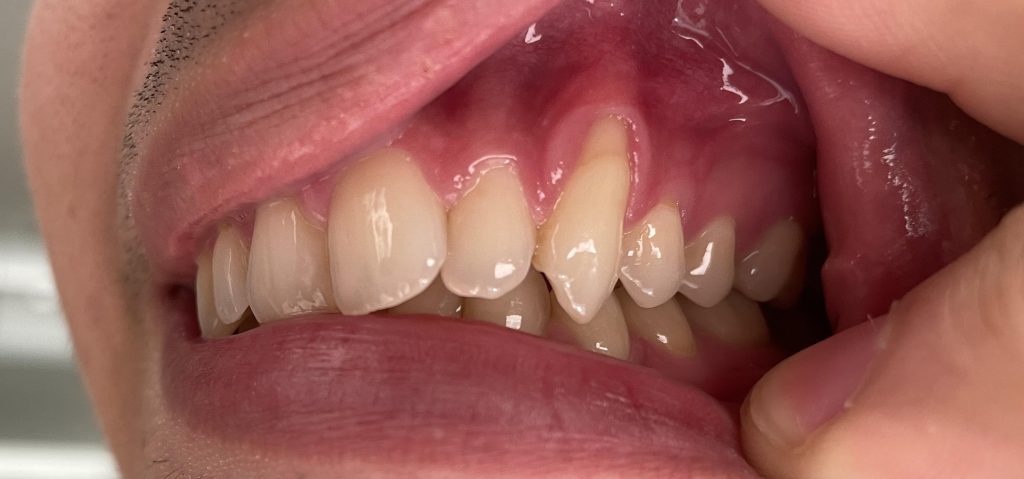 image source: reddit.com
image source: reddit.com
Gum recession refers to the gradual withdrawal or loss of gum tissue, exposing the roots of the teeth and leaving them vulnerable to decay, sensitivity, and other complications. While gum recession can be caused by various factors, including genetics, aging, and aggressive brushing habits, it is often associated with poor oral hygiene and periodontal disease.
10. You can't bite or chew anything without being in pain
 image source: reddit.com
image source: reddit.com
Discomfort or pain experienced when biting down or chewing can be indicative of various dental issues, including tooth decay, cracked or fractured teeth, or temporomandibular joint (TMJ) disorders. In cases of tooth decay, the pain may be triggered by pressure applied to the affected tooth during chewing, indicating that the decay has progressed to a point where it compromises the tooth's structure.
11. You have a loose tooth
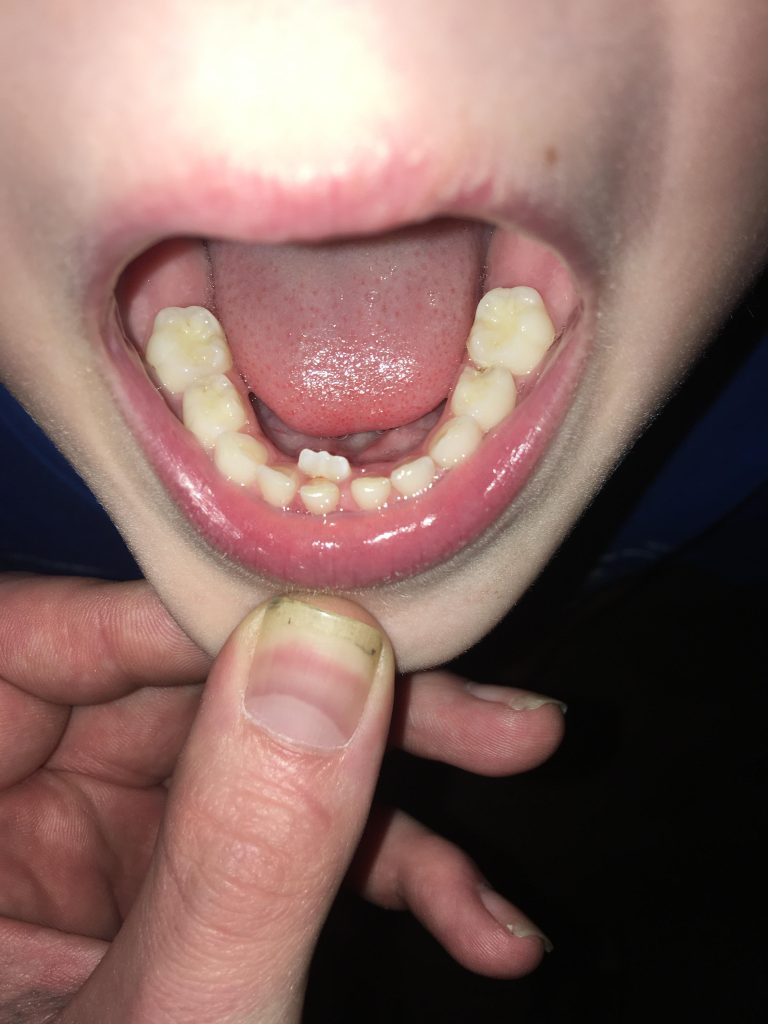 image source: reddit.com
image source: reddit.com
The presence of a loose tooth, whether partial or complete mobility, is a concerning sign that indicates significant damage to the tooth's supporting structures, including the surrounding bone and periodontal ligaments. Tooth decay is a common cause of tooth loosening, as the bacterial infection weakens the tooth's structure and compromises its stability within the socket.
12. Sugary sweets or drinks make your teeth ridiculously sensitive
 image source: reddit.com
image source: reddit.com
Heightened sensitivity to sugary foods or drinks can be an early warning sign of tooth decay, indicating that the protective enamel layer has been compromised, allowing sugars to penetrate the tooth and trigger nerve sensitivity. When bacteria feed on sugars present in the mouth, they produce acids that erode the enamel, leading to the formation of cavities.
13. You've actually found a crack in your tooth

image source: reddit.com
Cracks or fractures in the enamel of a tooth not only compromise its structural integrity but also create an entry point for harmful bacteria and debris, increasing the risk of tooth decay and infection. These cracks can occur due to various factors, including trauma, teeth grinding (bruxism), or biting down on hard objects.
14. Swollen lymph nodes can surprisingly be a sign
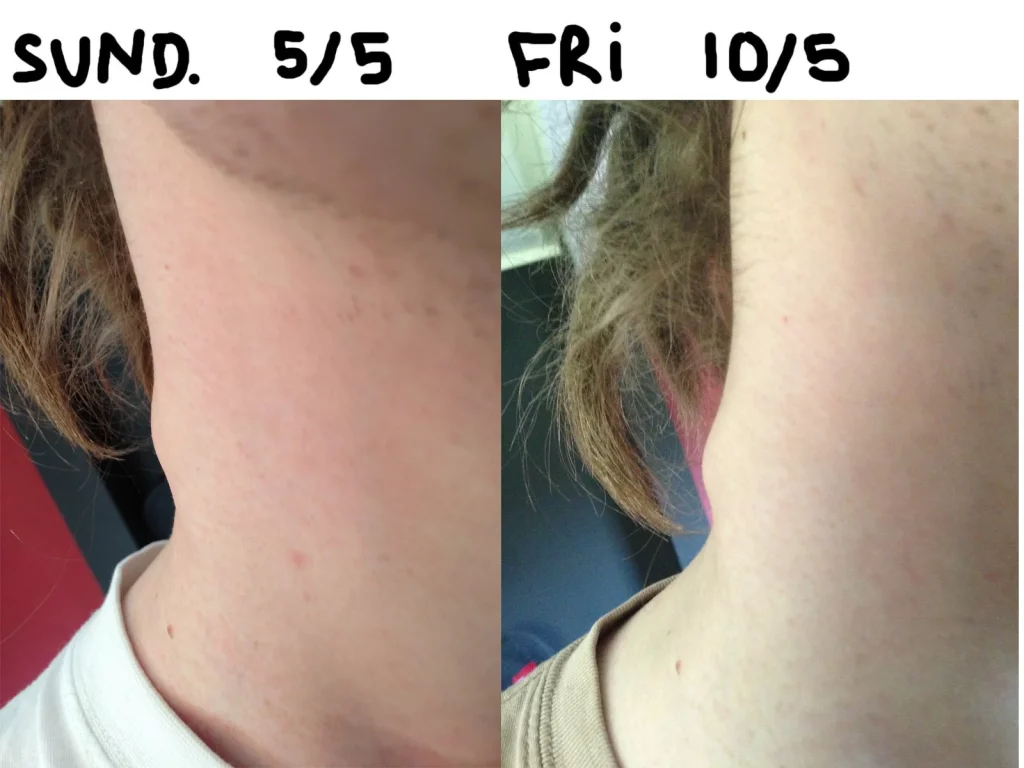 image source: reddit.com
image source: reddit.com
Swollen lymph nodes in the neck or jaw area can be a sign of an underlying infection, often related to dental issues such as tooth decay or gum disease. When bacteria from dental infections enter the bloodstream or lymphatic system, they can trigger an immune response, causing nearby lymph nodes to swell and become tender to the touch.
15. You suffer from chronic headaches that won't go away
 image source: reddit.com
image source: reddit.com
Chronic headaches can sometimes be linked to dental issues, including tooth decay, bruxism (teeth grinding), temporomandibular joint (TMJ) disorders, or sinus infections. When dental problems such as decay or infection affect the teeth or surrounding structures, they can cause referred pain that radiates to the head.
16. You might also have persistent earache
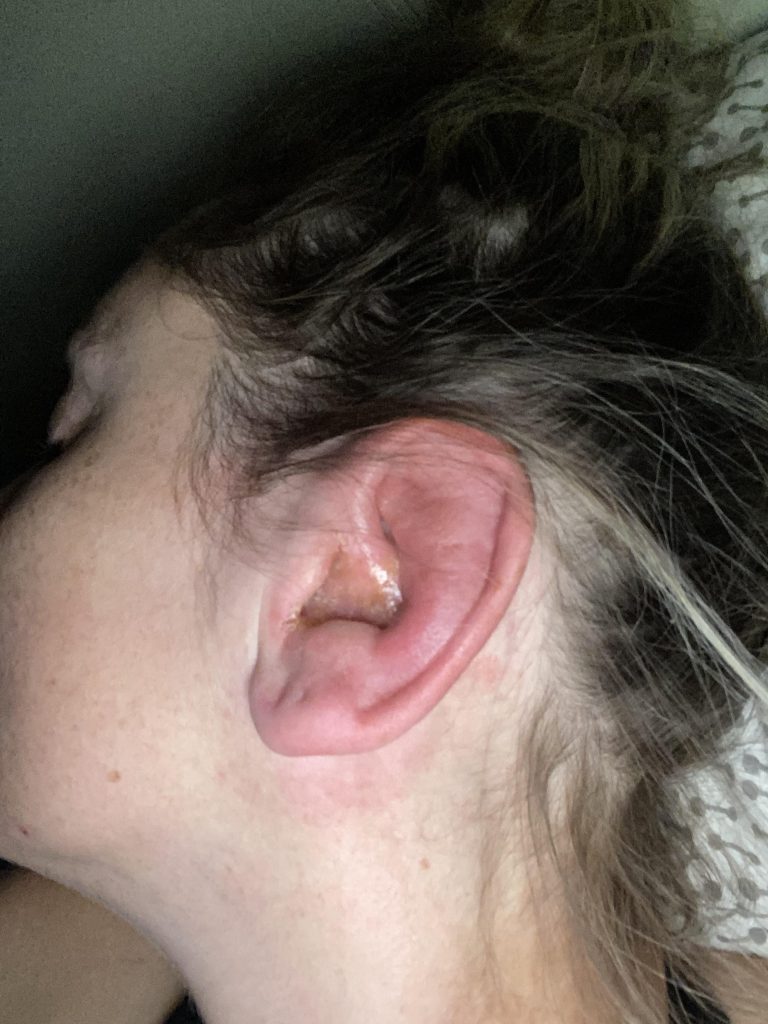 image source: reddit.com
image source: reddit.com
Bruxism-related muscle tension or TMJ dysfunction can contribute to earaches by causing strain on the jaw muscles and surrounding tissues. Proper diagnosis and treatment by a dental professional are essential to identify the underlying cause of the pain and implement appropriate interventions to alleviate symptoms and improve quality of life.
17. You've come down with a fever
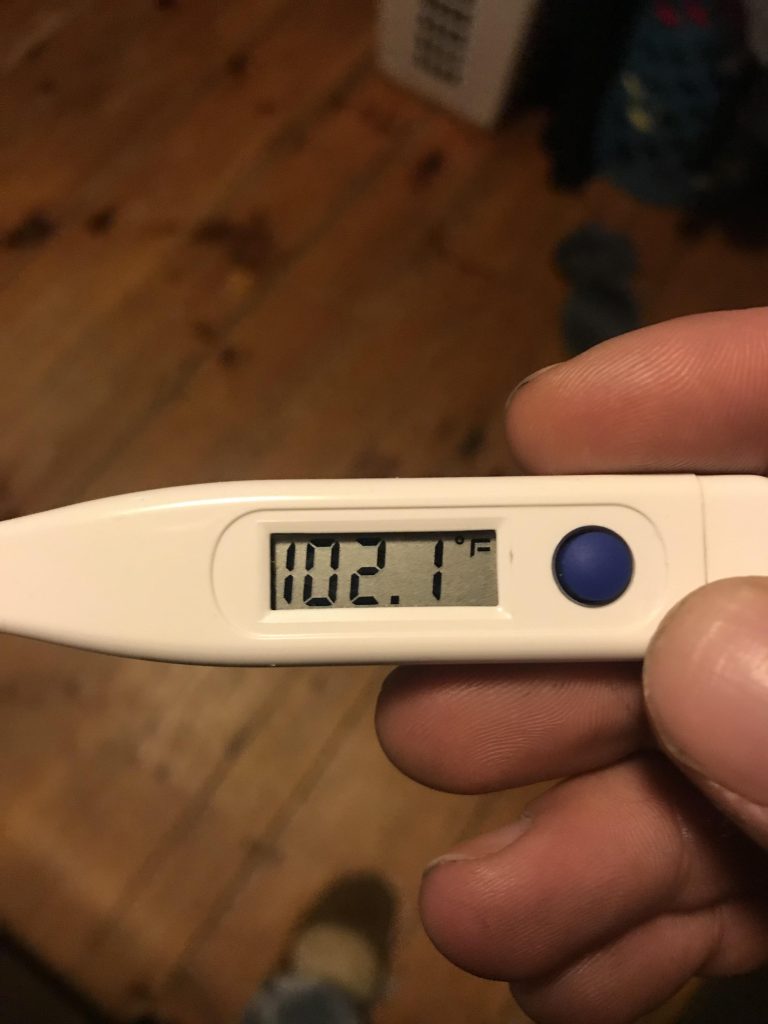 image source: reddit.com
image source: reddit.com
A fever is a systemic response to infection or inflammation in the body, including infections originating from tooth decay or dental abscesses. When bacteria from dental infections enter the bloodstream, they can trigger an immune response, causing the body's temperature to rise in an attempt to fight off the infection.
18. You've noticed darkening of the tooth
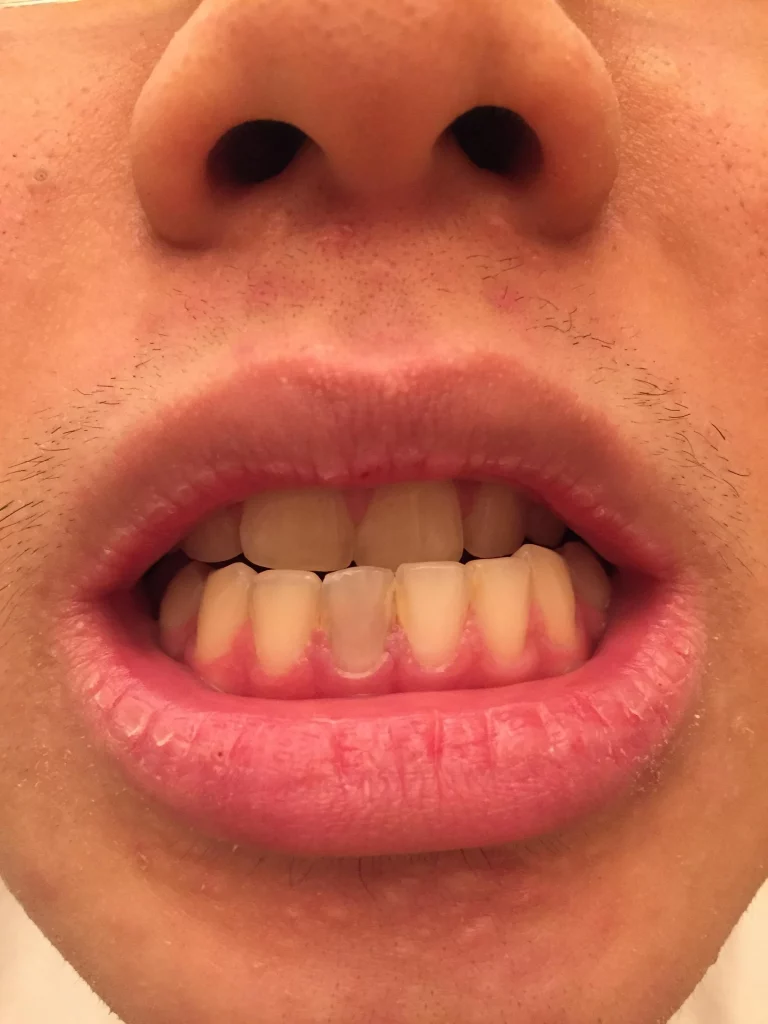 image source: reddit.com
image source: reddit.com
The darkening of a tooth's color is a common indication of advanced tooth decay and structural damage. As decay progresses, it can penetrate deeper into the tooth, reaching the inner layers and affecting its overall appearance. The darkening may result from bacterial activity, breakdown of tooth structure, or the accumulation of debris within the tooth's pulp chamber.
19. You can't open your mouth easily because of jaw pain or stiffness
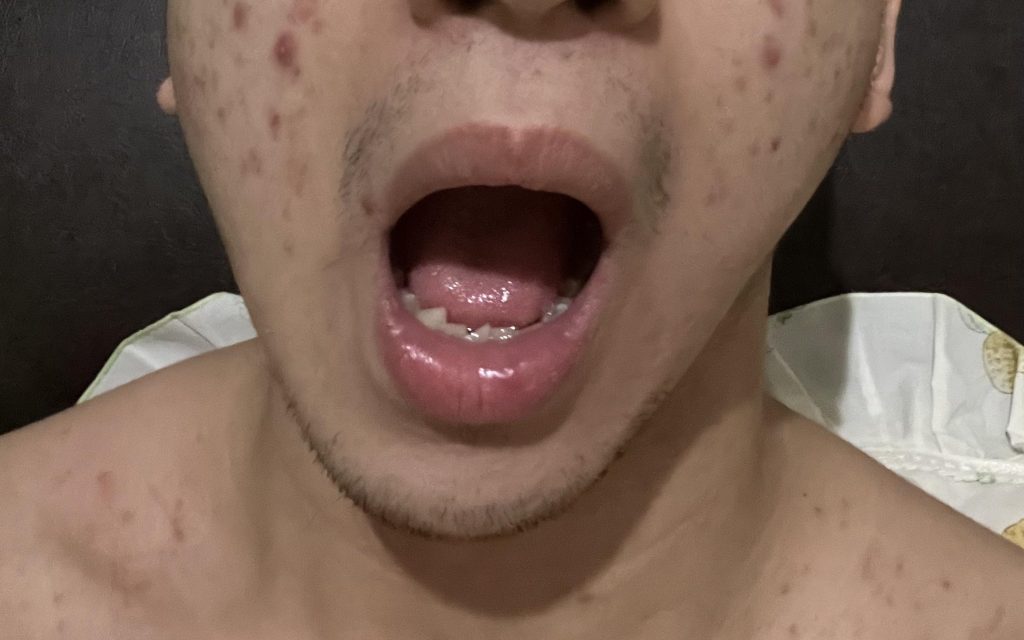 image source: reddit.com
image source: reddit.com
When tooth decay progresses to a severe stage, it can lead to deep dental infections that extend to the surrounding tissues, including the jaw joint. This can cause inflammation, swelling, and pain in the TMJ area, making it difficult to open the mouth fully or move the jaw without discomfort. Additionally, the pain and stiffness associated with TMJ disorder can exacerbate symptoms of tooth decay.
20. You have a general feeling of being run down

image source: reddit.com
An overall feeling of illness or malaise can occur when an infection from tooth decay spreads throughout the body, affecting systemic health. Tooth decay, if left untreated, can progress from affecting the tooth structure to causing widespread infection in the surrounding tissues, including the gums, jawbone, and even the bloodstream.
21. Your gums bleed whenever you brush your teeth
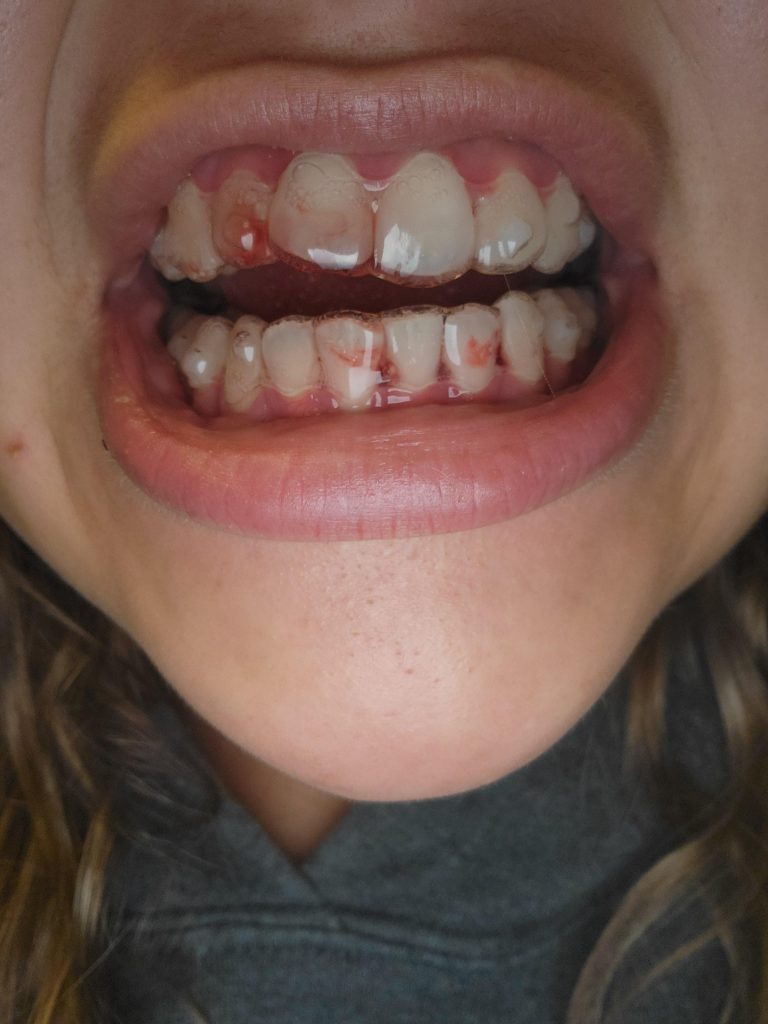 image source: reddit.com
image source: reddit.com
Bleeding gums, particularly when brushing or flossing, can serve as an early warning sign of advanced tooth decay or gum disease, collectively known as periodontal disease. When plaque, a sticky film of bacteria, accumulates along the gumline and between teeth, it can irritate the gums, causing inflammation and bleeding.
22. You have difficulty or pain when swallowing
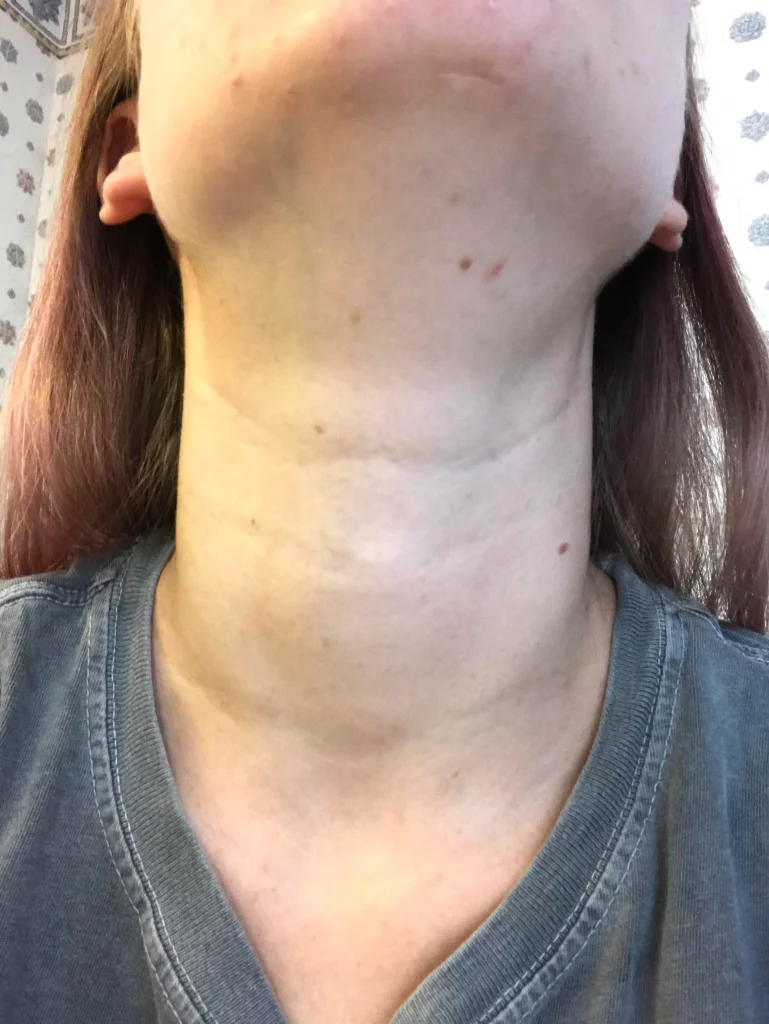 image source: reddit.com
image source: reddit.com
Difficulty or pain while swallowing can be a distressing symptom associated with the spread of infection from tooth decay to the throat or other areas of the mouth. When bacteria from advanced dental infections enter the throat or oral cavity, they can irritate the soft tissues, causing inflammation, soreness, and difficulty swallowing.
23. You keep getting a metallic taste in your mouth
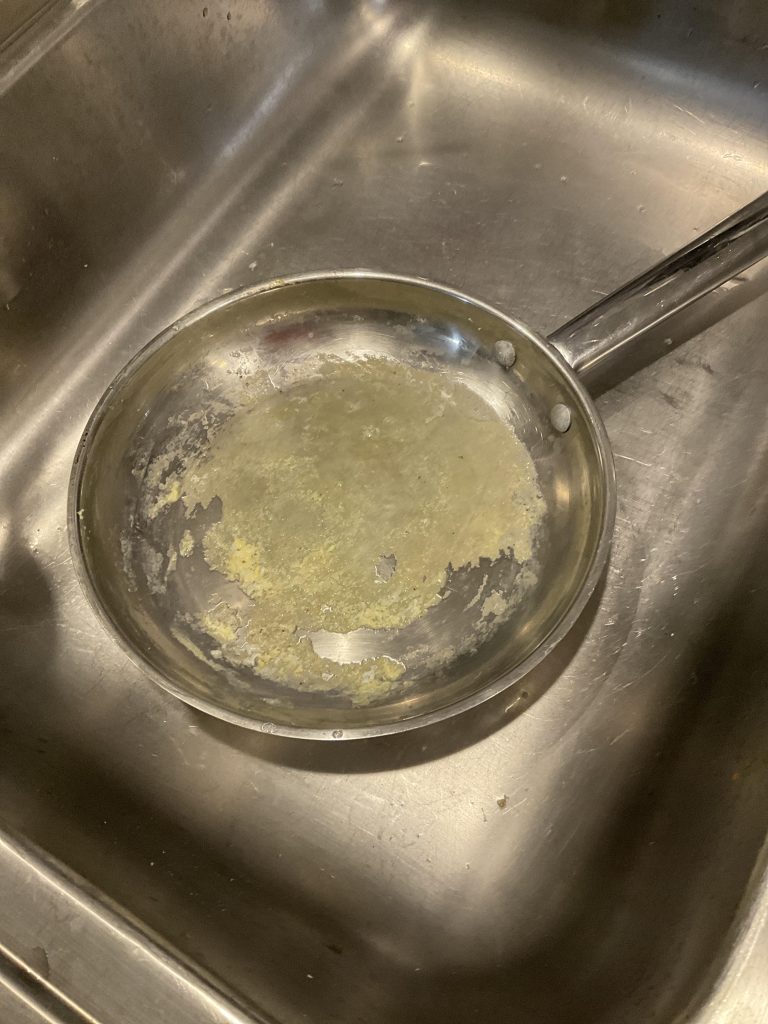 image source: reddit.com
image source: reddit.com
A metallic taste in the mouth can be an unpleasant symptom often associated with decay or infection in a tooth. When bacteria proliferate in the oral cavity due to dental decay or infection, they release byproducts that can alter the taste sensations, resulting in a metallic or bitter taste that comes and goes.
24. There's pain or pressure on your sinuses
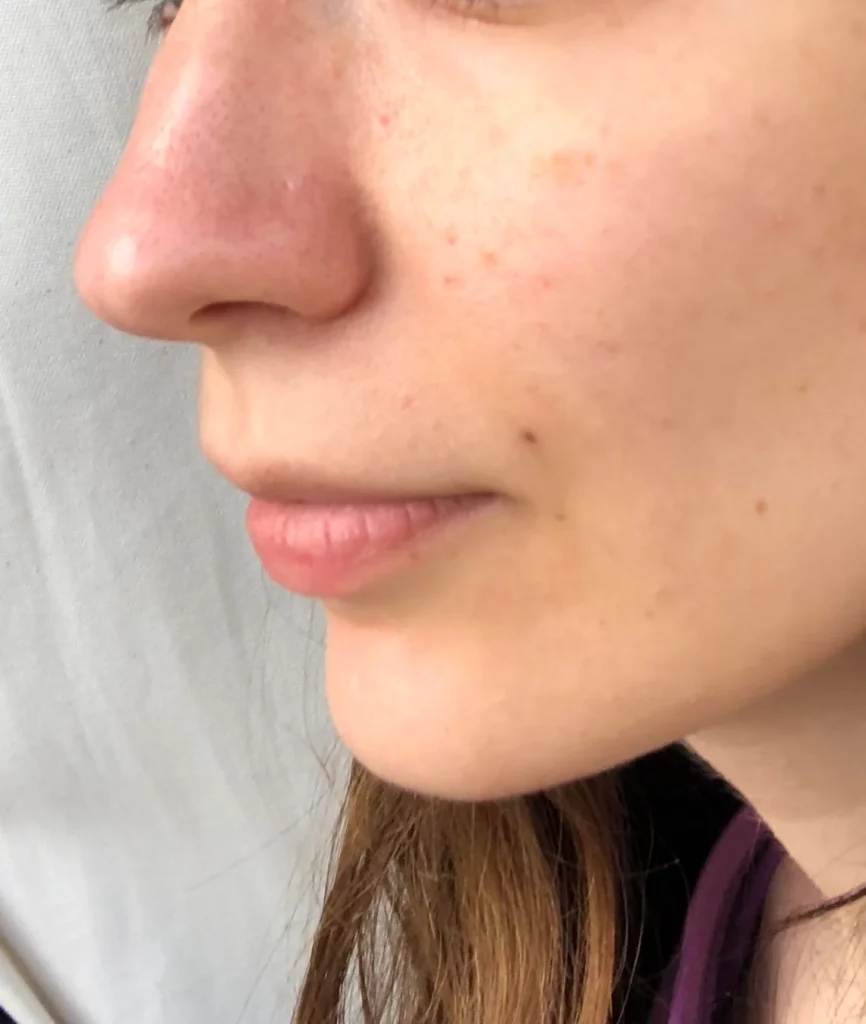 image source: reddit.com
image source: reddit.com
Tooth decay in the upper molars can occasionally lead to sinus pain or pressure due to the close proximity of the roots to the sinus cavities. When decay reaches the roots of the upper molars, it can irritate the nerves in the surrounding bone, causing discomfort that is felt as sinus pain or pressure. This phenomenon is known as referred pain, where the brain interprets signals from one area of the body as originating from another.
25. If you touch your tooth it seems to shift
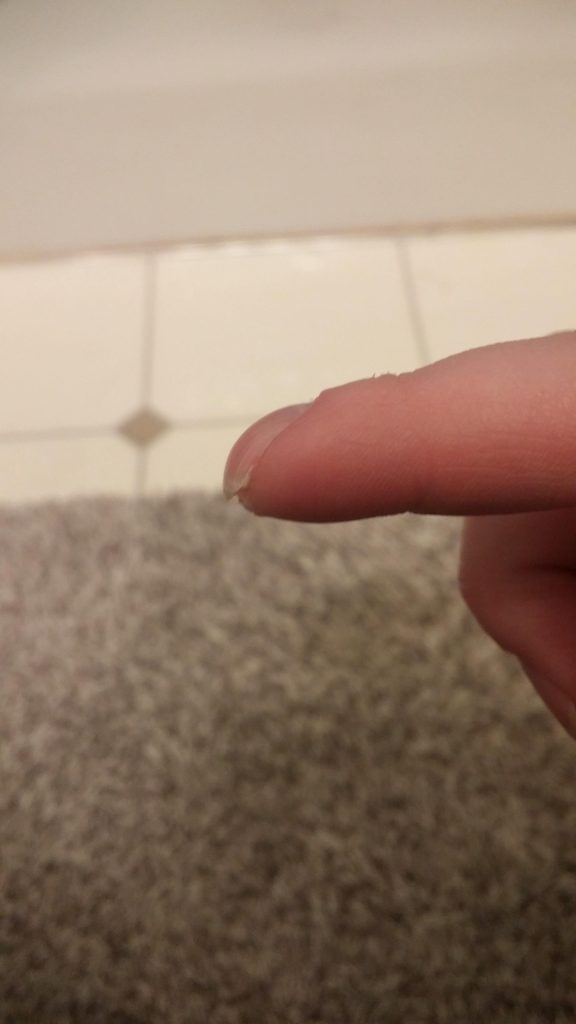
image source: reddit.com
Tooth mobility, characterized by movement or shifting of a tooth within its socket, is a concerning symptom that often indicates underlying dental problems, such as periodontal disease or advanced tooth decay. When the supporting structures of the tooth, including the surrounding bone and periodontal ligaments, become compromised due to infection or inflammation, the tooth may lose its stability.
26. Your gums look very red
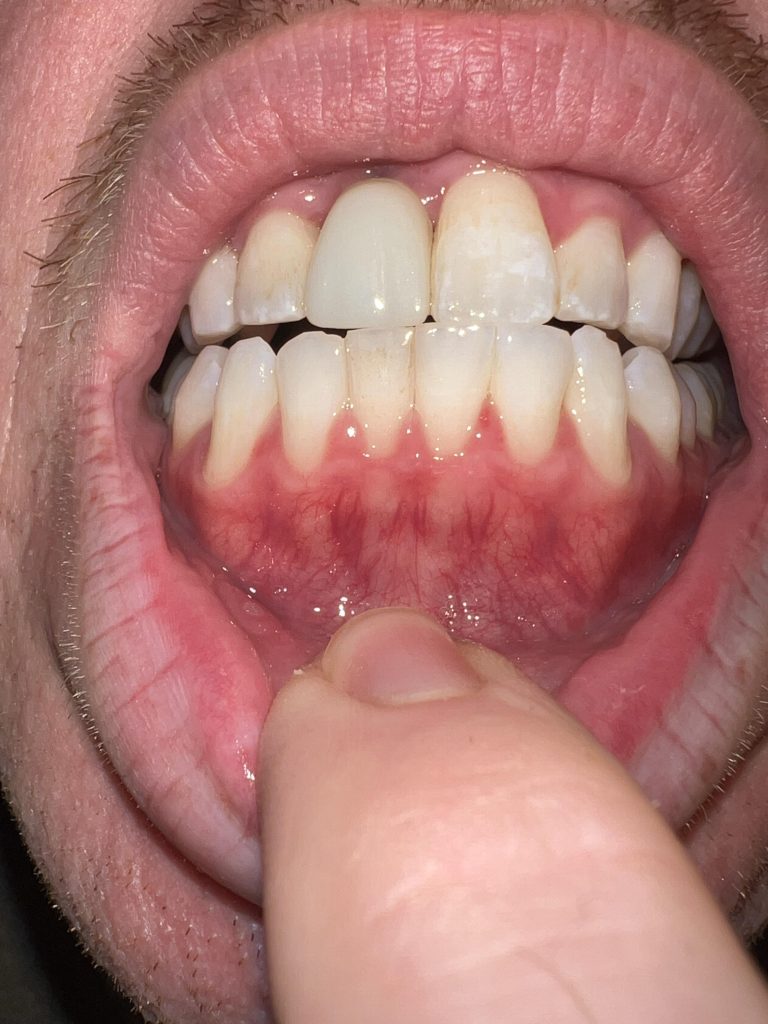 image source: reddit.com
image source: reddit.com
Inflammation or redness of the gums around a tooth can be a telltale sign of infection or irritation resulting from decay or gum disease. When bacteria in plaque accumulate along the gumline, they can trigger an inflammatory response from the body's immune system, leading to redness, swelling, and tenderness of the gums.
27. You keep getting a radiating pain through your face
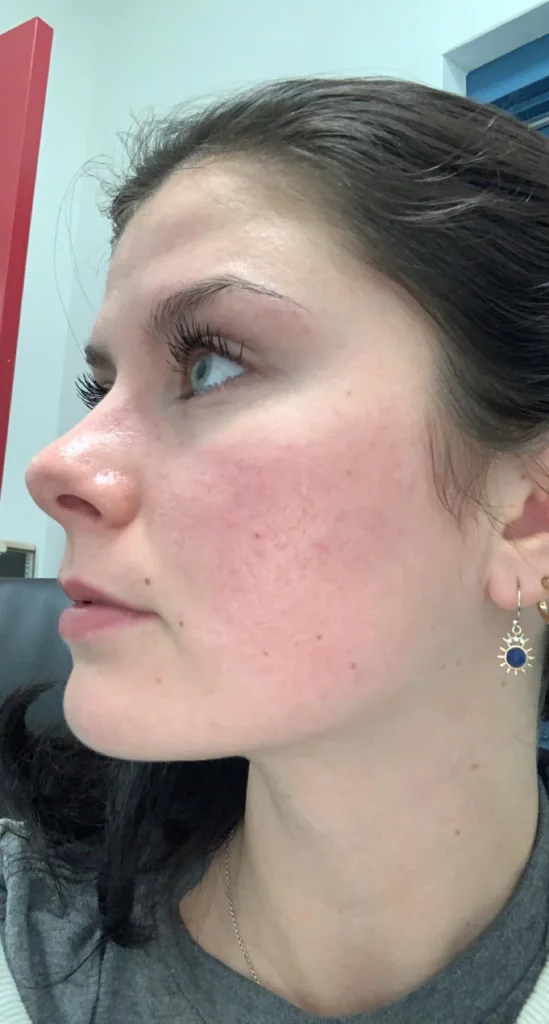
image source: reddit.com
Tooth decay can sometimes cause referred pain that radiates to other areas of the face, such as the jaw, ear, or temple. This phenomenon occurs when nerve fibers in the affected tooth send pain signals to nearby areas, leading the brain to perceive the pain as originating from those regions. Referred pain from tooth decay may be sharp, throbbing, or dull in nature.
28. You have this random unpleasant taste in your mouth you can't find the cause for
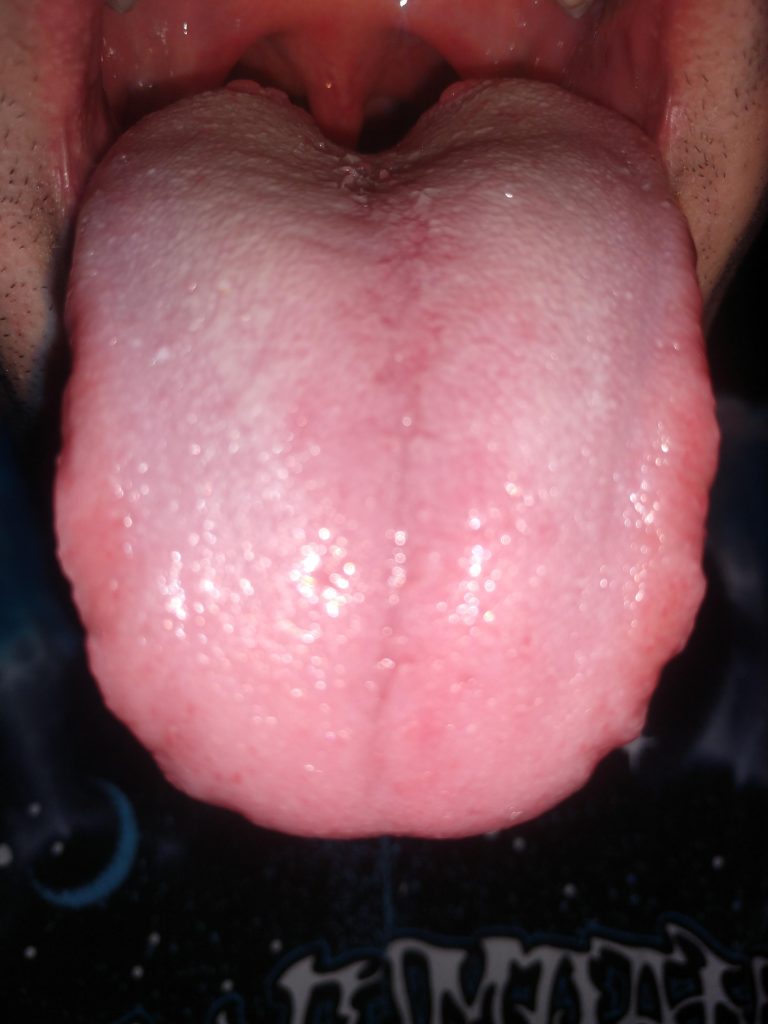 image source: reddit.com
image source: reddit.com
An unpleasant taste in the mouth, especially near a specific tooth, can often be a telling sign of tooth decay. When decay develops in a tooth, it creates an environment where harmful bacteria thrive and produce acids as they break down food particles. These acids not only erode the tooth's enamel but also generate unpleasant odors and tastes.
29. Your dentist has mentioned tooth problems or warning signs
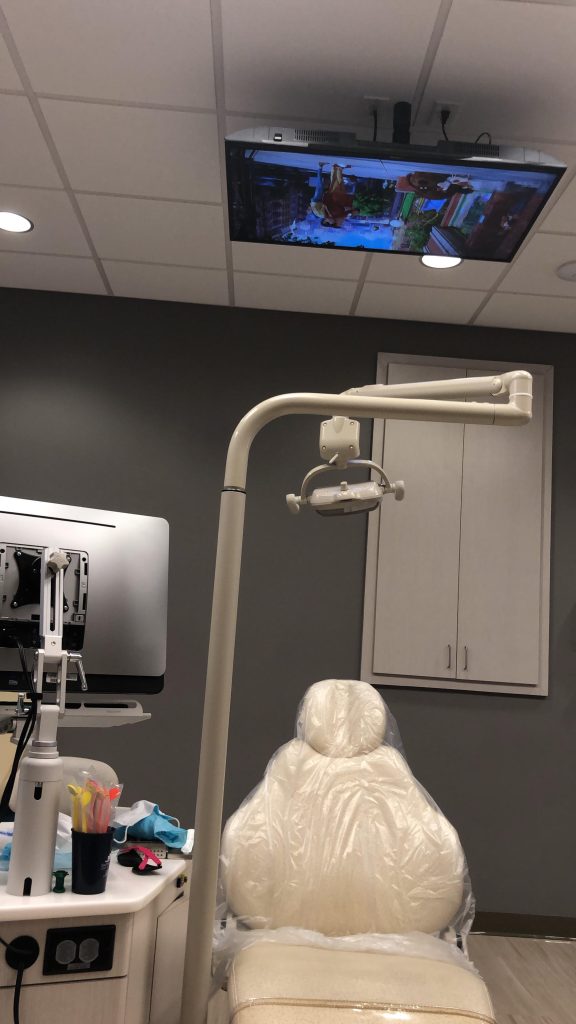
image source: reddit.com
When your dentist mentions tooth problems or warning signs during a dental appointment, it's essential to pay close attention and take their guidance seriously. Dentists are trained professionals who can identify early signs of dental issues that may not be readily apparent to the patient. These warning signs could include indications of tooth decay, gum disease, oral infections, or other dental concerns.
30. You're most uncomfortable lying down - so you can't sleep
 image source: reddit.com
image source: reddit.com
Tooth pain or discomfort, especially when lying down, can significantly impact sleep quality and duration, leading to difficulty sleeping comfortably. Individuals with tooth decay may experience worsening pain at night, as lying down can increase blood flow to the head and exacerbate pressure on the affected tooth. Additionally, tooth pain may be aggravated by changes in position or pressure from the pillow.
31. Your teeth have become misaligned when you bite down
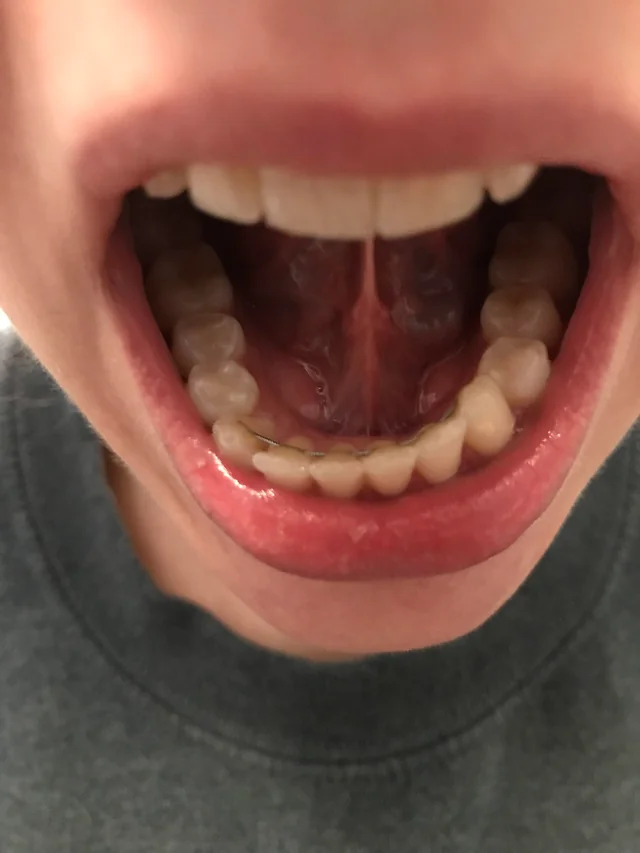 image source: reddit.com
image source: reddit.com
Severe tooth decay can lead to changes in bite alignment, also known as malocclusion, which can affect how the teeth fit together when biting down. As decay progresses, it can weaken the tooth structure and alter the shape and position of the affected teeth, resulting in misalignment or discomfort when chewing. Malocclusion may manifest as difficulty biting or chewing food evenly or uneven wear on the teeth.
32. You get a constant numbness or tingling around your mouth
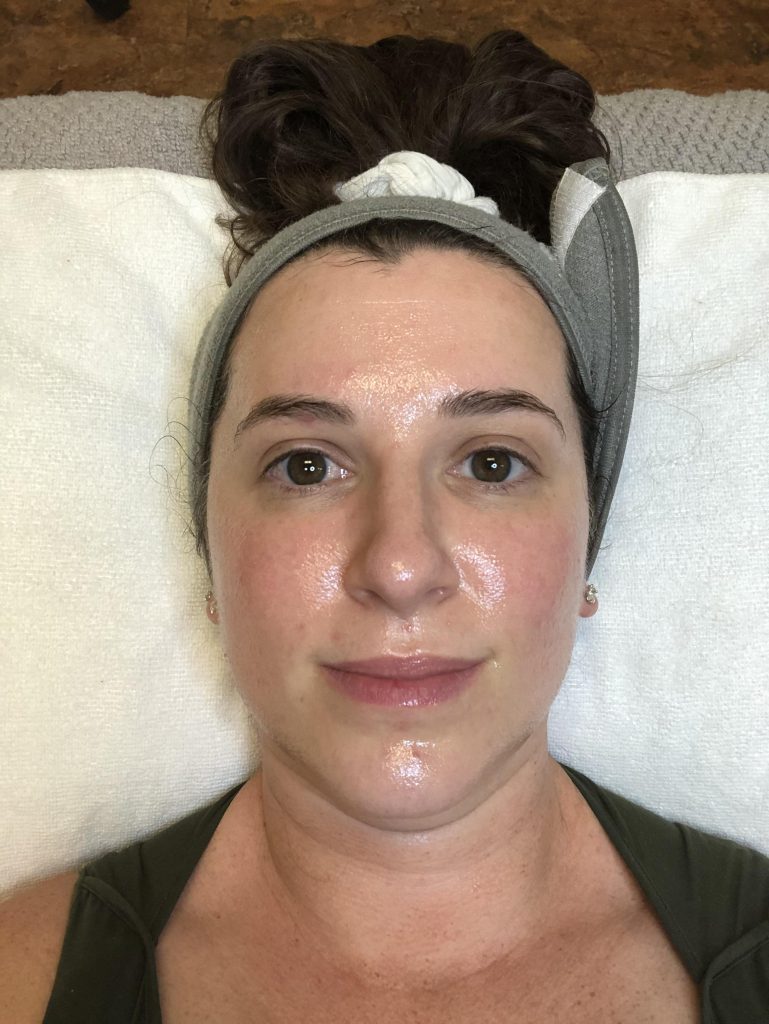 image source: reddit.com
image source: reddit.com
Severe tooth decay or infection can sometimes cause numbness or tingling sensations in the face or lips, particularly if the infection spreads to nearby nerves. This phenomenon, known as paresthesia, occurs when pressure from the infected tooth compresses or irritates nearby nerves, leading to altered sensation in the affected area.
33. You can no longer speak very clearly
 image source: reddit.com
image source: reddit.com
Tooth pain or swelling can significantly impact speech patterns, making it challenging to articulate certain sounds or words with clarity. When tooth decay or infection causes discomfort or swelling in the mouth, it can affect the movement and coordination of the tongue, lips, and jaw muscles, essential for proper speech production. This can result in slurred speech, lisping, or difficulty pronouncing specific consonants or vowels.
34. You have chronic dry mouth
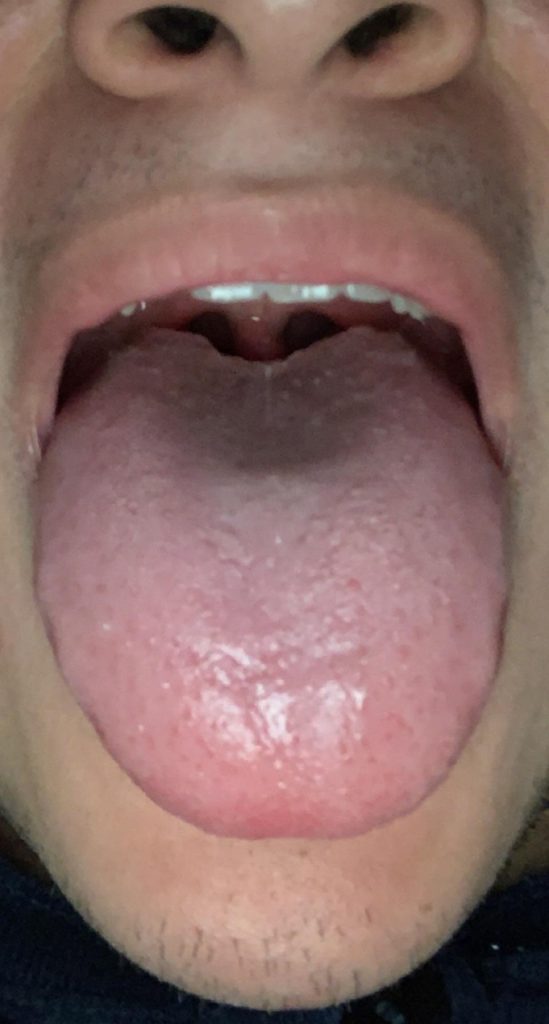
image source: reddit.com
Chronic dry mouth, medically known as xerostomia, can increase the risk of tooth decay by reducing saliva production, which plays a crucial role in maintaining oral health. Saliva serves as a natural lubricant and cleanser for the mouth, helping to wash away food particles, bacteria, and acids that contribute to decay.
35. You keep getting mouth and throat infections
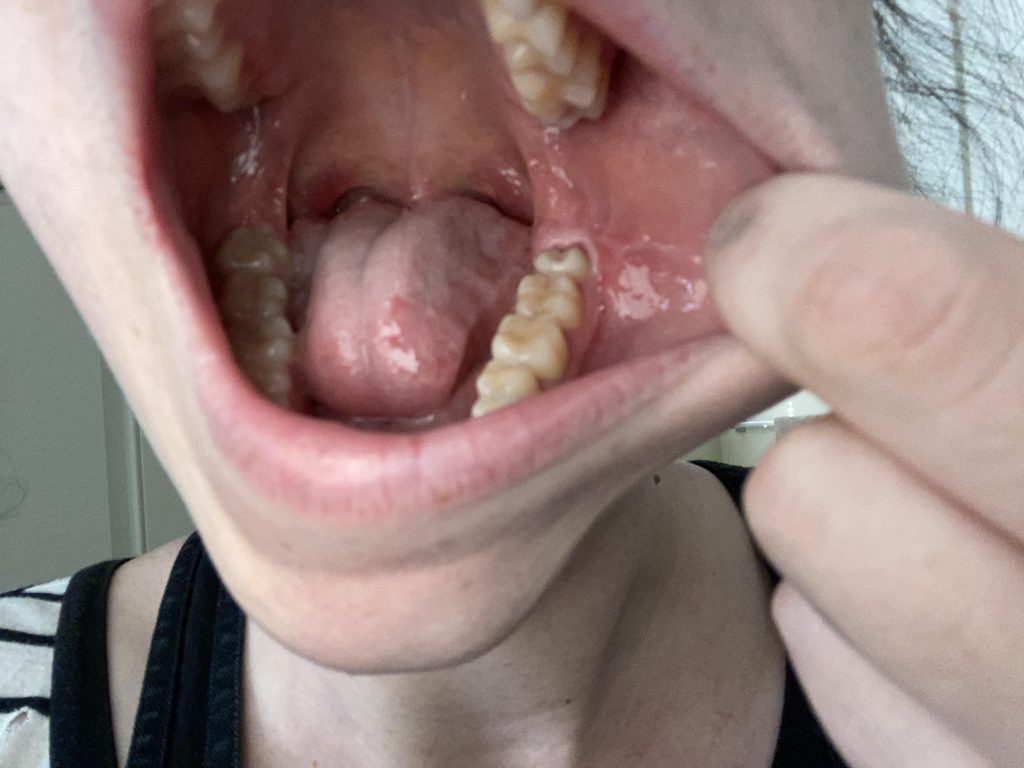 image source: reddit.com
image source: reddit.com
Frequent or recurrent infections in the mouth or throat can be a sign of underlying dental issues, including tooth decay, gum disease, or dental abscesses. When bacteria from dental infections spread to the surrounding tissues, they can trigger an inflammatory response, leading to symptoms such as pain, swelling, redness, and infection.
36. A rotting tooth might actually show through visible damage to other teeth around it
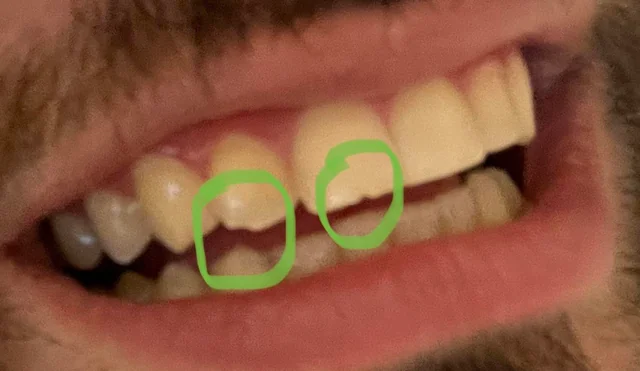 image source: reddit.com
image source: reddit.com
Decay or damage to neighboring teeth can occur if the infection from a rotting tooth spreads to adjacent teeth or if there is crowding or misalignment in the mouth. Tooth decay is a contagious bacterial infection that can spread from one tooth to another through direct contact or the sharing of bacteria-rich saliva.
37. You have chronic fatigue: you're just so tired, all the time
 image source: reddit.com
image source: reddit.com
Severe tooth decay or infection can exert stress on the body and contribute to feelings of fatigue or exhaustion. When dental issues such as decay, abscesses, or gum disease are left untreated, they can lead to chronic inflammation, pain, and discomfort, which can affect overall well-being and energy levels.
38. You find it impossible to concentrate
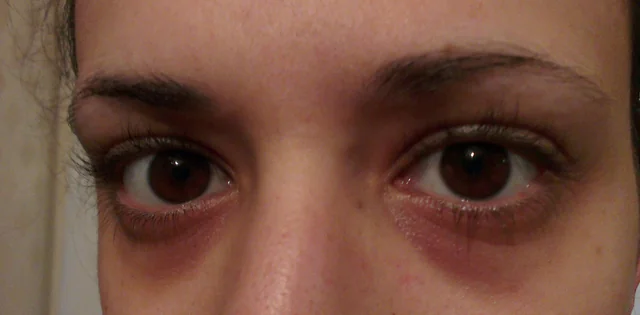 image source: reddit.com
image source: reddit.com
Chronic tooth pain or discomfort can be highly distracting and may significantly interfere with an individual's ability to concentrate on tasks or activities. When experiencing ongoing dental issues such as tooth decay or infection, the constant presence of pain or discomfort can monopolize attention and mental resources, making it challenging to focus.
39. Your face shape has completely altered
 image source: reddit.com
image source: reddit.com
Severe tooth decay or tooth loss can have a noticeable impact on the shape or appearance of the face, particularly if it affects the alignment of the jaw or surrounding teeth. When teeth decay or are lost, it can lead to changes in facial symmetry, jawline definition, and lip support, altering the overall appearance of the face.
40. Here's how you can avoid your teeth rotting: brush your teeth twice a day, every day
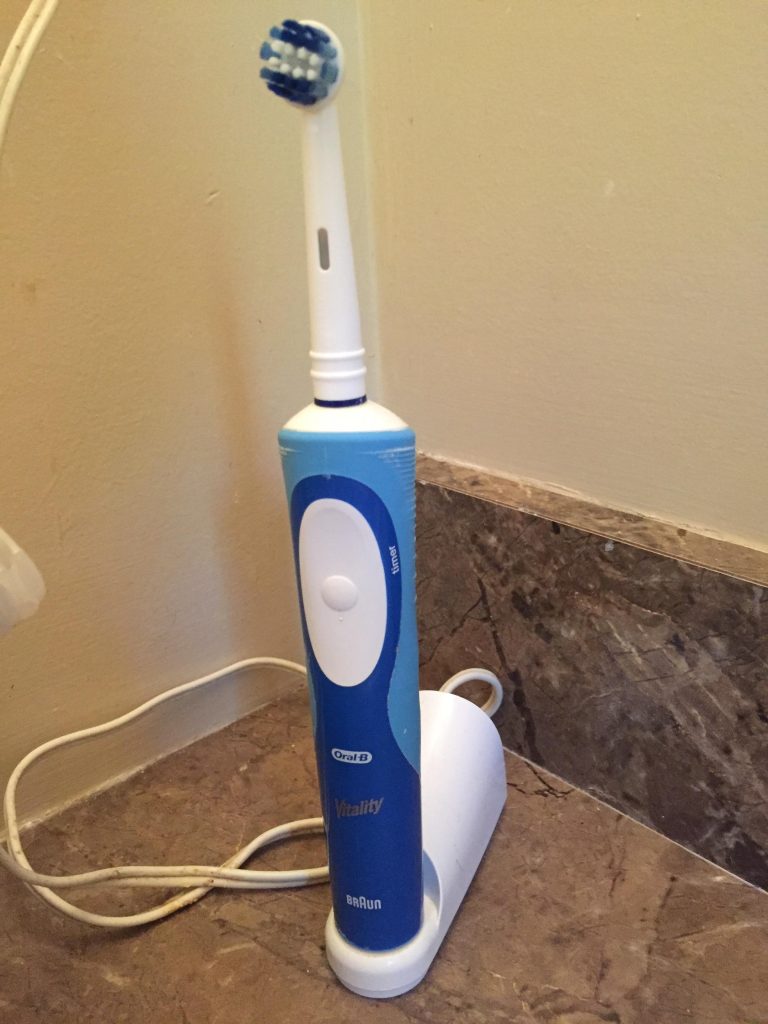 image source: reddit.com
image source: reddit.com
Establishing a regular oral hygiene routine is essential for maintaining optimal dental health and preventing tooth decay and gum disease. Brushing your teeth twice a day with fluoride toothpaste and a soft-bristled toothbrush helps remove plaque, food particles, and bacteria that can lead to cavities and other oral health issues.
41. Don't forget about flossing
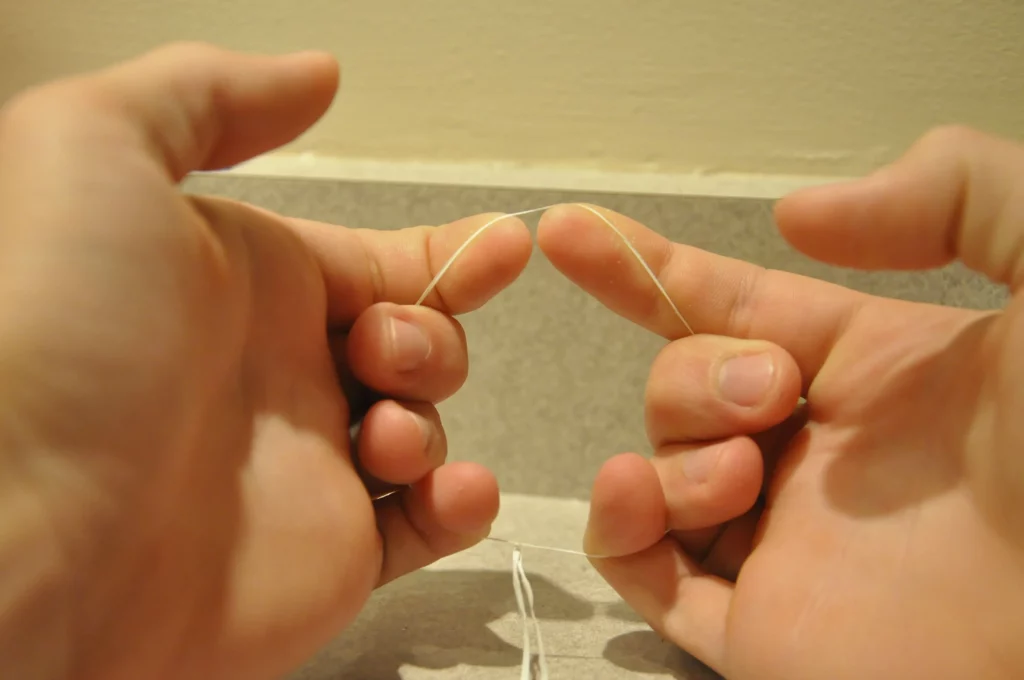 image source: reddit.com
image source: reddit.com
In addition to brushing, daily flossing is essential for maintaining good oral hygiene and preventing plaque buildup between teeth and along the gumline. Dental floss or interdental cleaners help remove plaque and food particles that your toothbrush might miss, particularly in hard-to-reach areas between teeth and below the gumline.
42. Don't underestimate the power of mouthwash, either
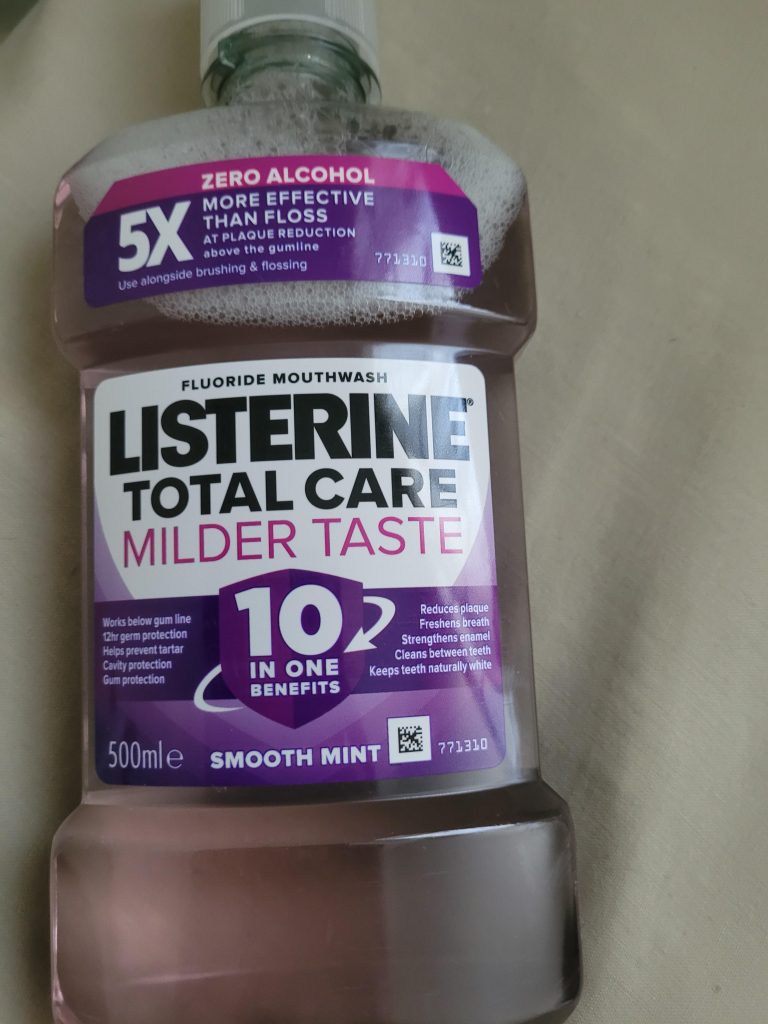 image source: reddit.com
image source: reddit.com
Rinsing with an antimicrobial mouthwash is an important adjunct to brushing and flossing for maintaining optimal oral hygiene and freshening breath. Mouthwash helps reduce bacteria in the mouth, control plaque buildup, and promote healthy gums. Additionally, antimicrobial mouthwashes containing fluoride can help strengthen tooth enamel and protect against cavities.
43. Limit your intake of sugary and acidic foods/drinks
 image source: reddit.com
image source: reddit.com
Minimizing consumption of sugary snacks, candies, sodas, and acidic beverages is crucial for maintaining optimal dental health and preventing tooth decay. Sugary and acidic foods provide an ideal environment for bacteria in the mouth to thrive, leading to the production of acids that erode tooth enamel and cause cavities. Frequent exposure to sugars and acids can also weaken the protective enamel layer.
44. Drinking plenty of water can encourage saliva production
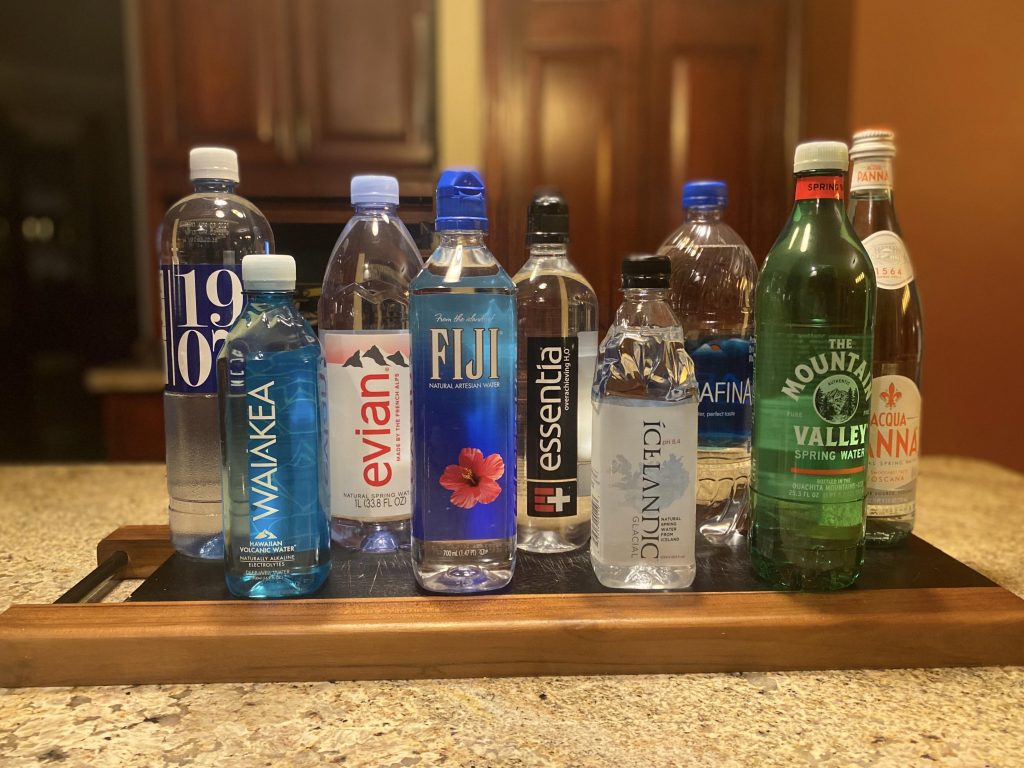 image source: reddit.com
image source: reddit.com
Drinking plenty of water throughout the day is essential for maintaining a healthy mouth and preventing tooth decay. Water helps rinse away food particles, bacteria, and acids that can accumulate on the teeth and gums, reducing the risk of cavities and gum disease. Additionally, water helps promote saliva production, which plays a vital role in protecting teeth by neutralizing acids, remineralizing enamel, and washing away bacteria.
45. A balanced diet will help overall oral health
 image source: reddit.com
image source: reddit.com
Consuming a balanced diet rich in essential nutrients is key to supporting overall oral health and preventing dental problems. A diet that includes a variety of nutrient-rich foods such as fruits, vegetables, lean proteins, and dairy products provides the vitamins, minerals, and antioxidants necessary for strong teeth and gums.
46. Chewing sugar-free gum can help to promote a healthy mouth
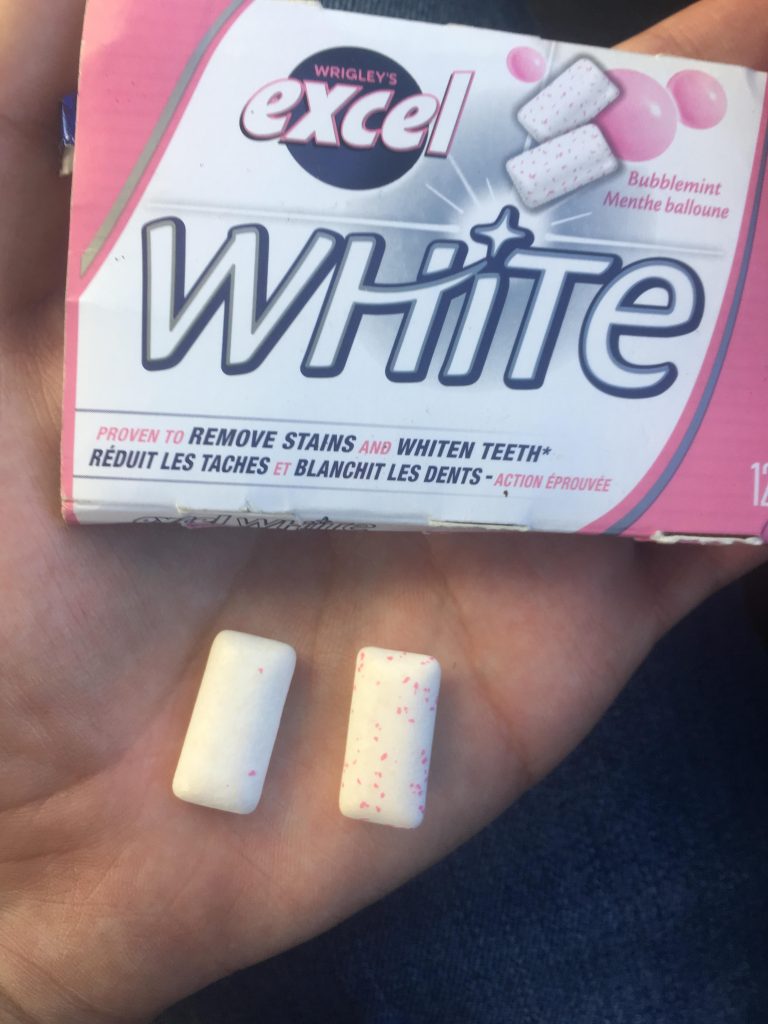 image source: reddit.com
image source: reddit.com
Chewing sugar-free gum, particularly after meals, can be beneficial for oral health by stimulating saliva flow and helping neutralize acids in the mouth. Saliva plays a crucial role in protecting teeth by washing away food particles, bacteria, and acids, remineralizing enamel, and maintaining a neutral pH balance in the mouth.
47. Schedule routine dental checkups to keep on top of everything
 image source: reddit.com
image source: reddit.com
Scheduling routine dental check-ups and cleanings every six months, or as recommended by your dentist, is essential for maintaining optimal oral health and preventing dental issues. Regular dental visits allow dentists to monitor your oral health, detect any signs of dental problems early, and provide timely interventions to address them.
48. Consider using dental sealants
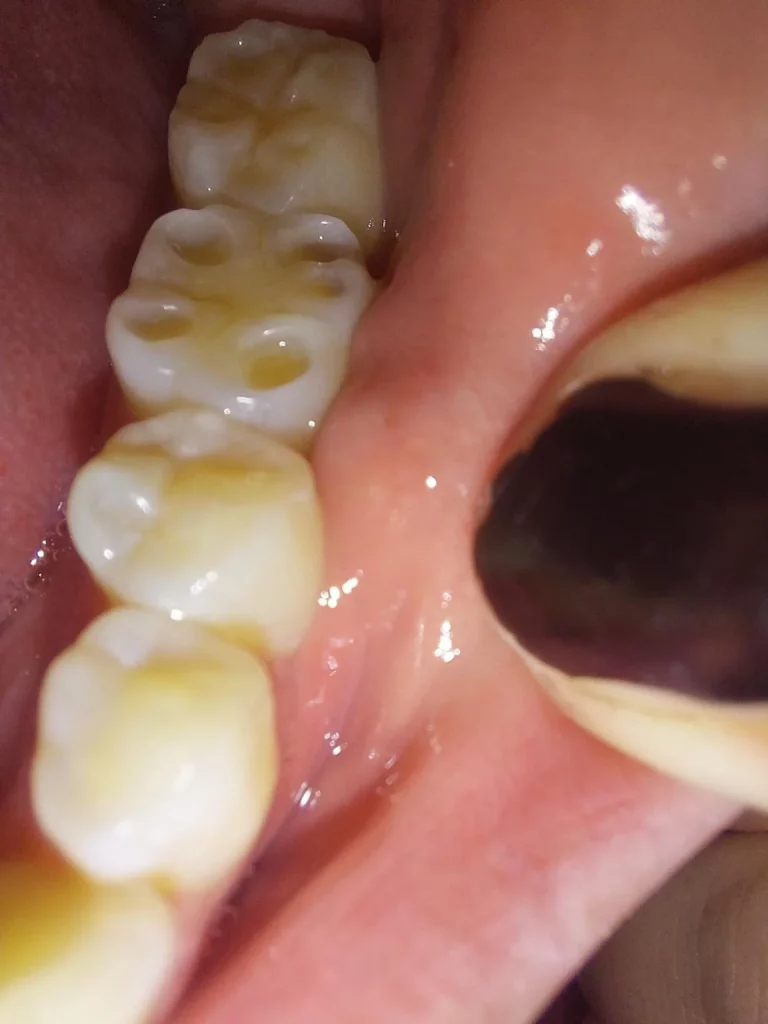 image source: reddit.com
image source: reddit.com
Dental sealants are thin, protective coatings applied to the chewing surfaces of the back teeth (molars and premolars) to help prevent decay in the grooves and pits. These areas are particularly vulnerable to cavities because they can be difficult to clean effectively with brushing and flossing alone. Dental sealants act as a barrier, sealing off the deep grooves and pits of the teeth and preventing bacteria.
49. Using fluoride toothpaste can help strengthen tooth enamel
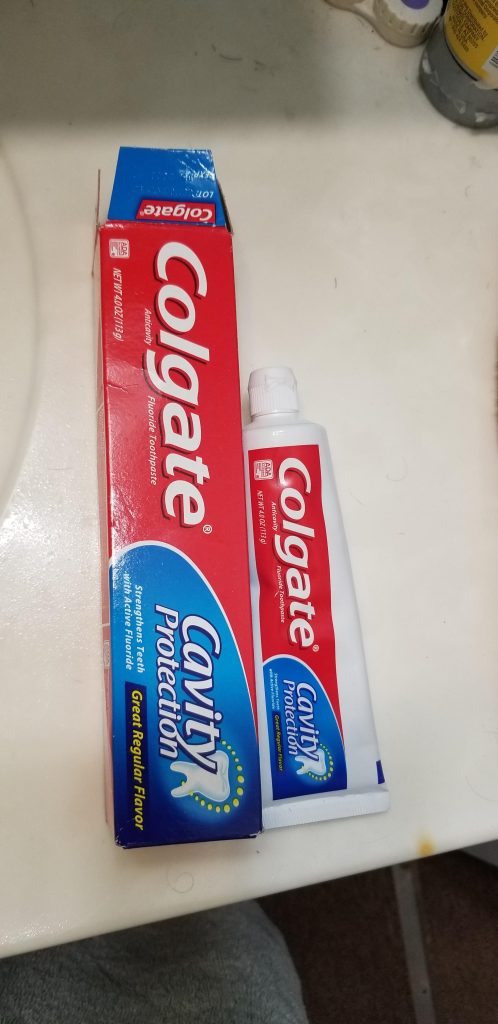
image source: reddit.com
Fluoride treatments are a valuable preventive measure that can help strengthen enamel and reduce the risk of tooth decay. Fluoride is a naturally occurring mineral that helps remineralize and strengthen tooth enamel, making teeth more resistant to acid erosion and decay, so opting for this toothpaste will help.
50. If you smoke, consider quitting to protect your teeth
 image source: reddit.com
image source: reddit.com
Quitting smoking or using tobacco products is crucial for improving oral health and reducing the risk of gum disease, tooth decay, and other serious dental issues. Tobacco use is a significant risk factor for gum disease, as it weakens the immune system and reduces blood flow to the gums, making them more susceptible to infection and inflammation.
 image source: reddit.com
image source: reddit.com image source: reddit.com
image source: reddit.com image source: reddit.com
image source: reddit.com image source: reddit.com
image source: reddit.com image source: reddit.com
image source: reddit.com image source: reddit.com
image source: reddit.com image source: reddit.com
image source: reddit.com image source: reddit.com
image source: reddit.com image source: reddit.com
image source: reddit.com image source: reddit.com
image source: reddit.com image source: reddit.com
image source: reddit.com image source: reddit.com
image source: reddit.com
 image source: reddit.com
image source: reddit.com image source: reddit.com
image source: reddit.com image source: reddit.com
image source: reddit.com image source: reddit.com
image source: reddit.com image source: reddit.com
image source: reddit.com image source: reddit.com
image source: reddit.com
 image source: reddit.com
image source: reddit.com image source: reddit.com
image source: reddit.com image source: reddit.com
image source: reddit.com image source: reddit.com
image source: reddit.com
 image source: reddit.com
image source: reddit.com
 image source: reddit.com
image source: reddit.com
 image source: reddit.com
image source: reddit.com image source: reddit.com
image source: reddit.com image source: reddit.com
image source: reddit.com image source: reddit.com
image source: reddit.com
 image source: reddit.com
image source: reddit.com image source: reddit.com
image source: reddit.com image source: reddit.com
image source: reddit.com image source: reddit.com
image source: reddit.com image source: reddit.com
image source: reddit.com image source: reddit.com
image source: reddit.com image source: reddit.com
image source: reddit.com image source: reddit.com
image source: reddit.com image source: reddit.com
image source: reddit.com image source: reddit.com
image source: reddit.com image source: reddit.com
image source: reddit.com image source: reddit.com
image source: reddit.com image source: reddit.com
image source: reddit.com image source: reddit.com
image source: reddit.com
 image source: reddit.com
image source: reddit.com